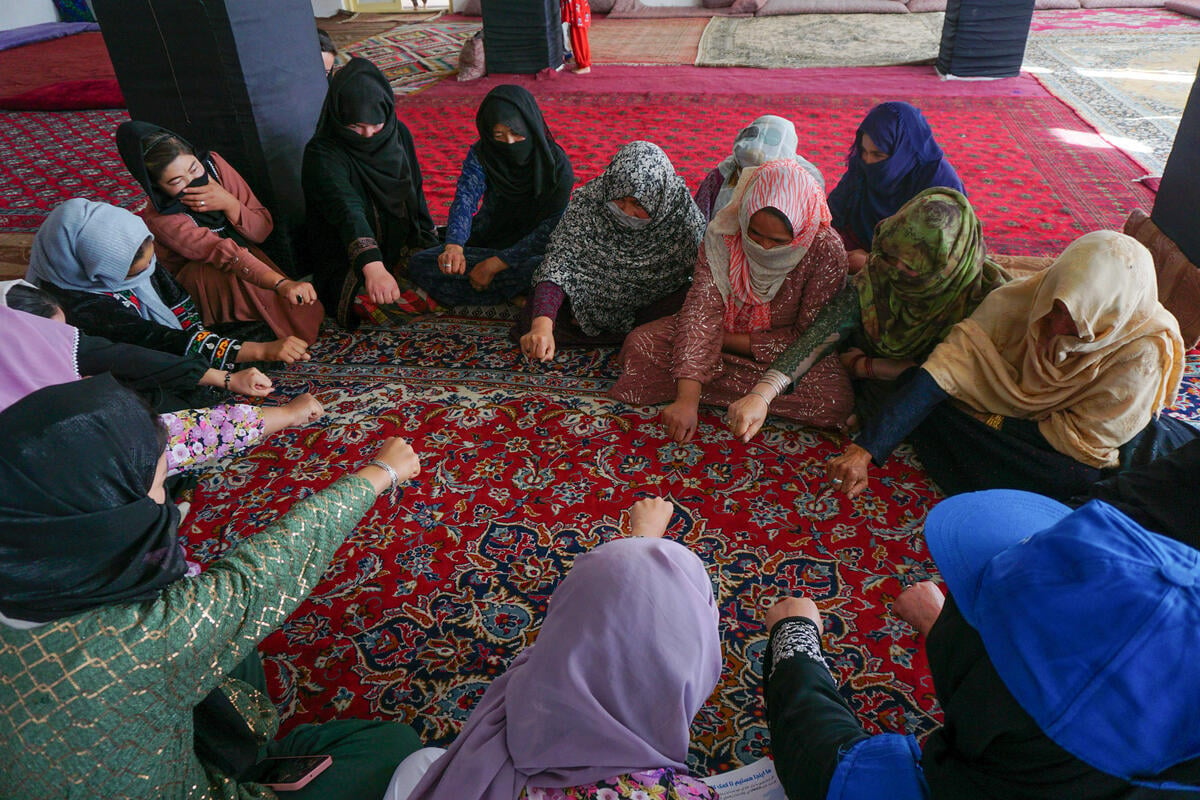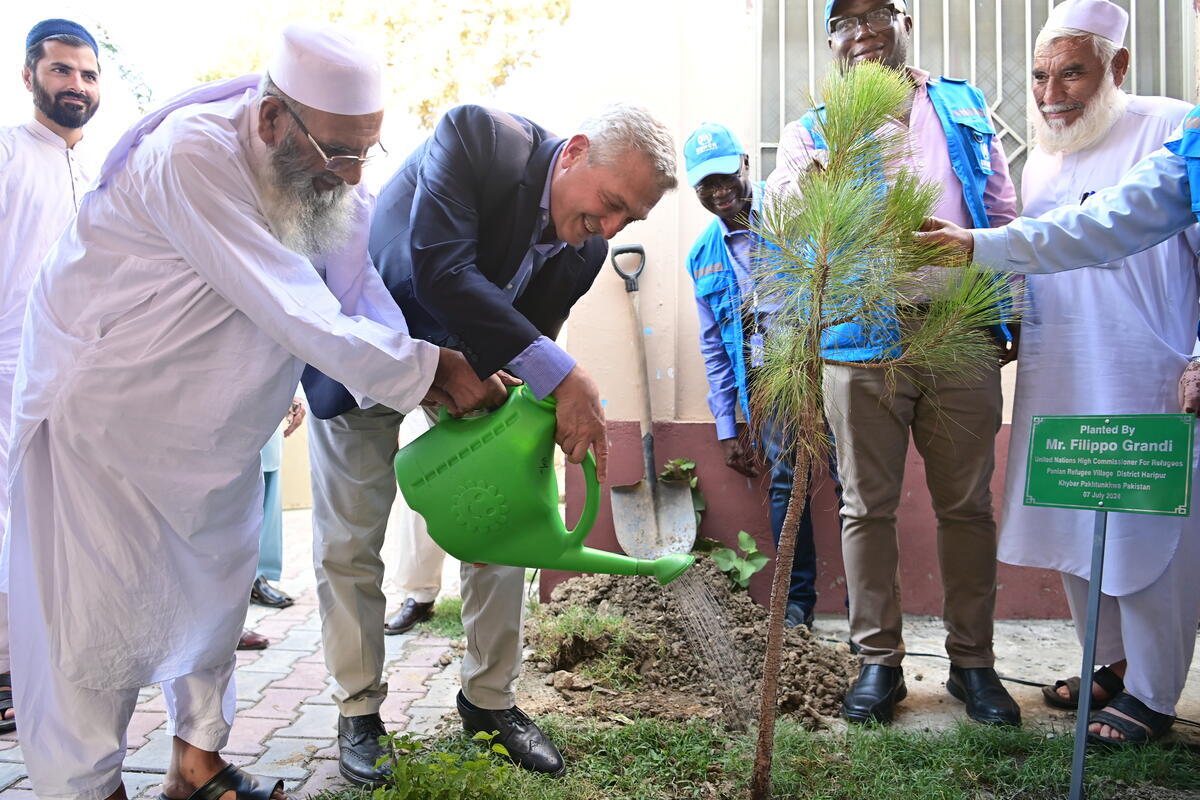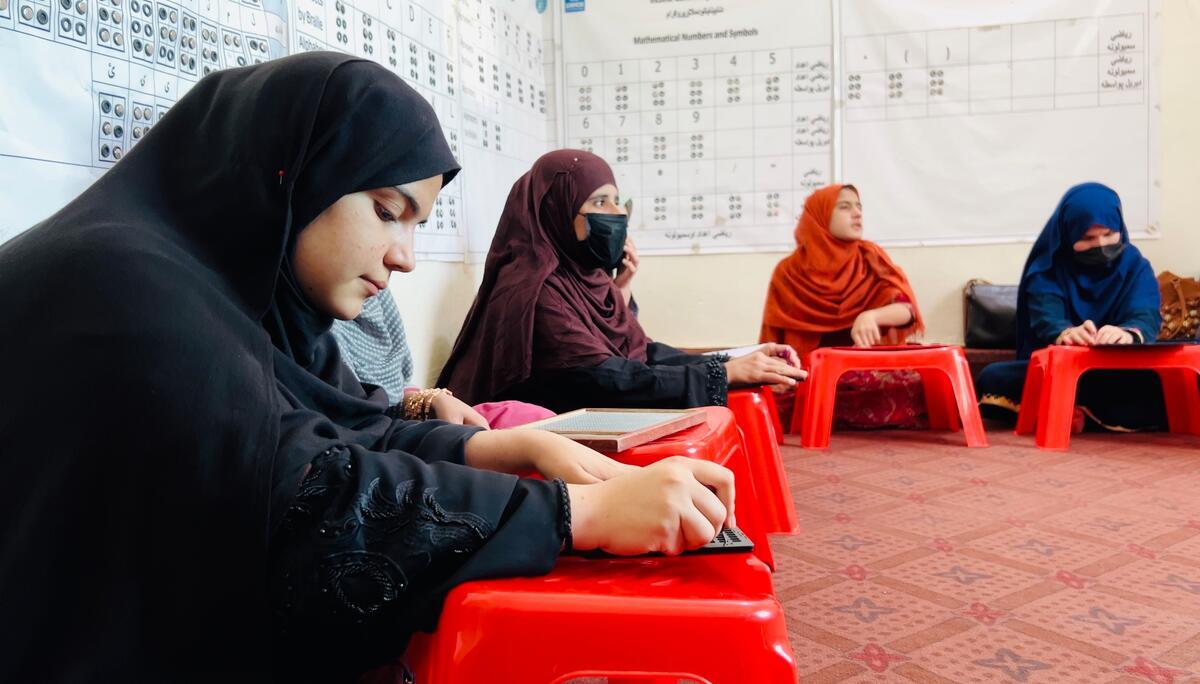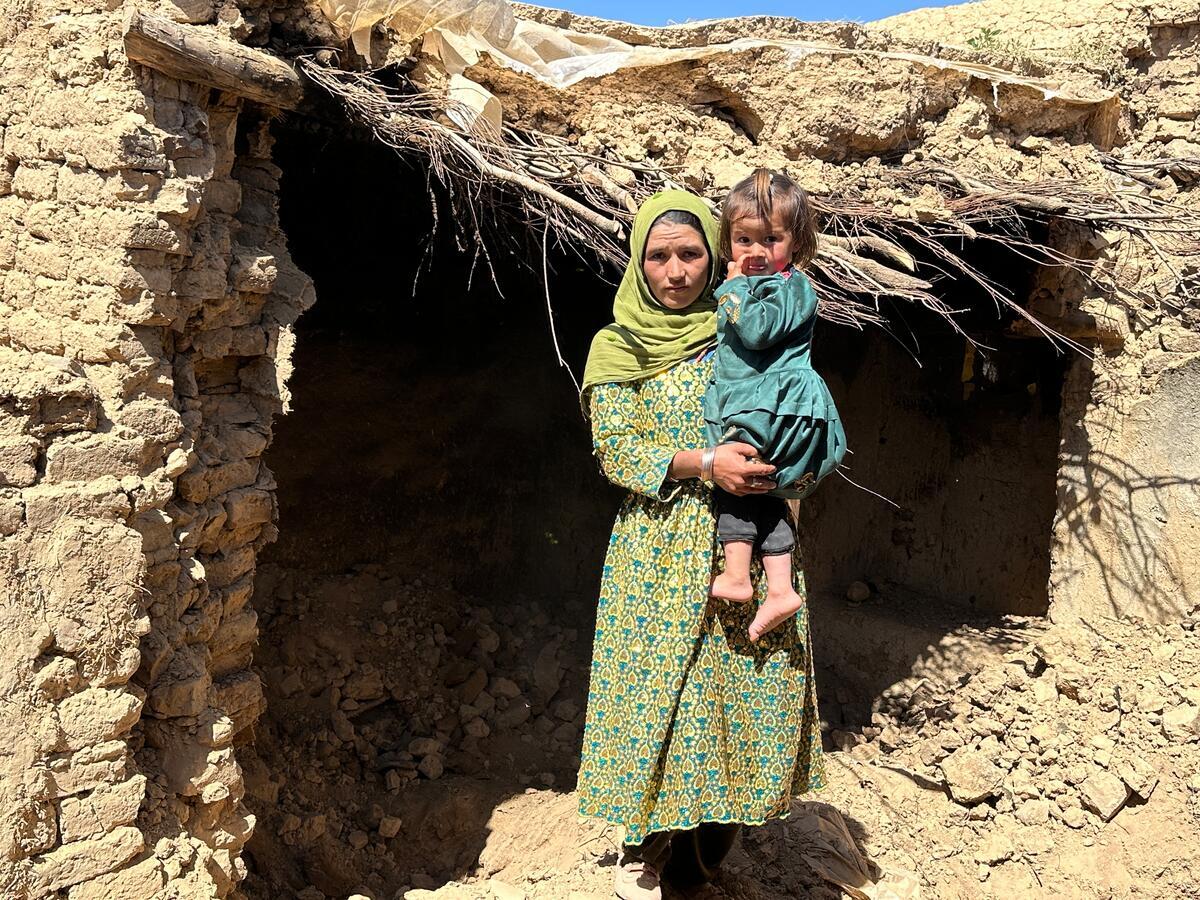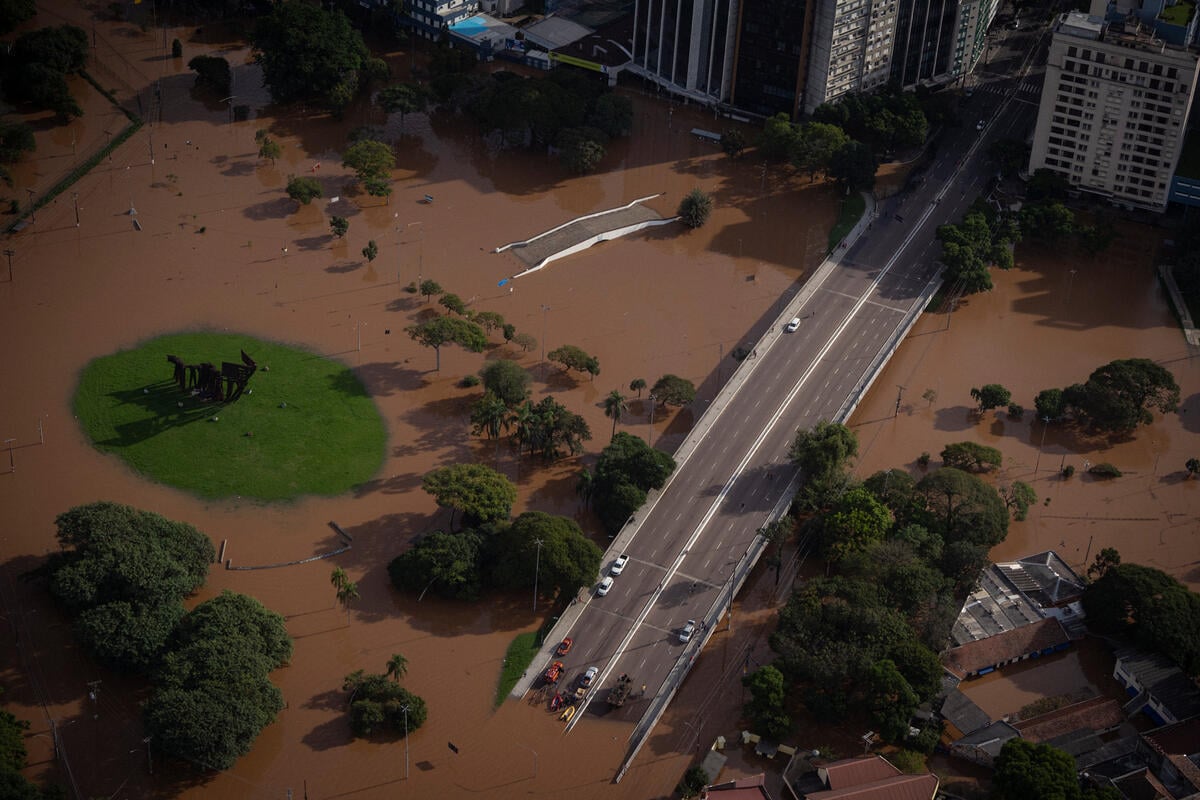Future of Afghan refugees and migrants to be discussed in Geneva
Future of Afghan refugees and migrants to be discussed in Geneva

GENEVA, October 4 (UNHCR) - The governments of Iran, Pakistan and Afghanistan will meet with donor governments and international organizations in Geneva on October 7, for the latest round of Strategic Consultations on Refugees and Population Movements to and from Afghanistan, the UN refugee agency said today.
Friday's meeting comes as a follow-up to last February's Strategic Consultations in Brussels and provides an opportunity for the three governments, donor countries, UNHCR and other agencies to discuss future policy and arrangements for Afghans inside and outside their home country. Mr. Richard Greene, Acting U.S. Assistant Secretary of State, Bureau of Population, Refugees and Migration (BPRM), and UN High Commissioner for Refugees António Guterres will co-chair the meeting.
"For the fourth consecutive year [Afghanistan] is the biggest voluntary repatriation worldwide, and voluntary repatriation remains our main priority," Guterres said, as he opened UNHCR's five-day Executive Committee meeting on Monday. "While mindful of the difficult political, economic, and security conditions in that country, we need to maintain its momentum and count on your continued support for this. The substantial number of remaining Afghans will present new challenges. The forthcoming Strategic Consultations ... will give us a chance to advance our collective efforts to address them."
In general, UNHCR views the Afghanistan repatriation as a success story, the agency's spokesman, Ron Redmond, told reporters on Tuesday. The repatriation operation remains the biggest in the world, with over half a million returnees expected in 2005 - and a total of 4.2 million since 2002. At the same time, the number of Afghan asylum claims in industrialized countries has fallen by 80 percent from over 54,400 in 2001 to 9,300 last year.
Despite many challenges, progress towards peace and stability in Afghanistan has continued to attract Afghans to return home.
"The commitment of the international community towards Afghanistan's reconstruction has been commendable and remains crucial," Redmond said.
Four years after the fall of the Taliban, however, there are still a number of obstacles impeding many of the remaining Afghans from returning home.
"Difficult social conditions, lack of land and housing, limited employment opportunities and instability in parts of the country, particularly in the south and south-east from where many refugees originate, still do not encourage return," Redmond noted. "About 3 million Afghans remain in Pakistan and Iran, which have generously hosted millions of refugees for years."
According to a March census in Pakistan, and similar data gathered in Iran, most of these Afghans have either lived in the two countries for decades or were born there. Many have contributed significantly to the host communities.
"Some may never return to Afghanistan," said Redmond, "a reality that needs to be taken into consideration for the future and which - among other issues - will be discussed at Friday's meeting."
A registration of Afghan citizens in Pakistan has been planned for 2006. Registration data will provide the government with the tools to manage such populations in the future.
In general, UNHCR believes that Afghans are no longer leaving their country because of war and persecution, Redmond said. Over the past year a number of studies on population movements, migration and transnational networks have been carried out and have provided the Governments and the international community with valuable insights and planning tools to address the challenges, he added.


